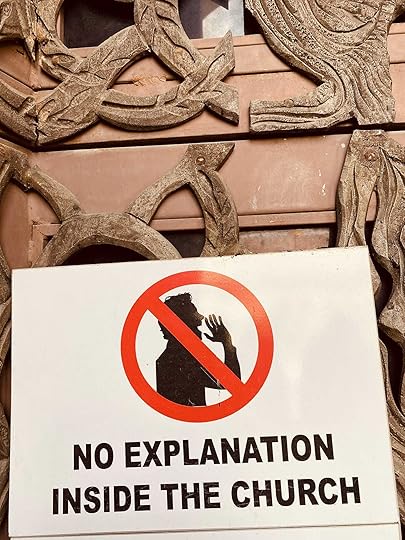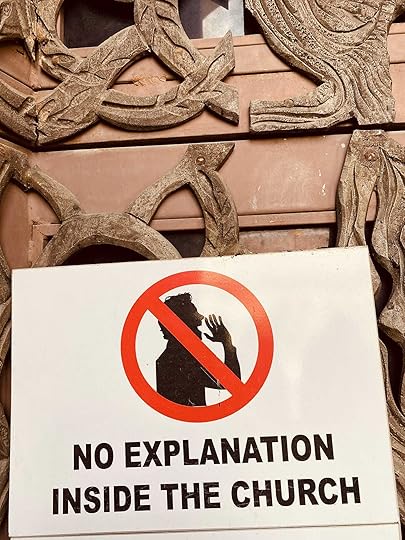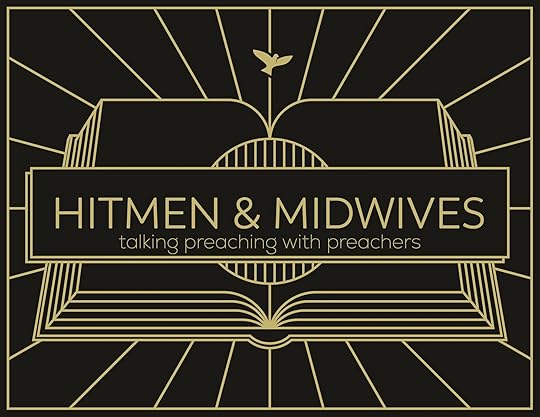Christ Calls Proclaimers Not Explainers

Tamed Cynic is a reader-supported publication. To receive new posts and all content, consider becoming a paid subscriber.
For a series of lectures I gave last fall for the Anglican Church of Canada on these themes, click here.
The lectionary epistle passage for this Sunday is Romans 10.5-10, in which the apostle Paul makes the frighteningly offensive claim that the Maker of Heaven and Earth has forever outsourced the work salvation to ordinary sinners who speak gospel into the earballs of other sinners:
If you confess with your lips that Jesus is Lord and believe in your heart that God raised him from the dead, you will be saved. For one believes with the heart and so is justified, and one confesses with the mouth and so is saved…For, "Everyone who calls on the name of the Lord shall be saved."
But how are they to call on one in whom they have not believed? And how are they to believe in one of whom they have never heard? And how are they to hear without someone to proclaim him?"
Why do preachers then put so little stock in proclamation?
Is it because we cannot stomach the notion that God not only makes a history with us but makes its End somehow contingent upon those creatures called preachers?
It’s no wonder we opt instead for safer homiletical territory, hortatory and advice and lettuce (“Let us…”) sermons; i.e., the law.
What else, other than the sheer stakes it impinges upon us, can account for what frequently feels like a conspiracy of silence in the church when it comes to the aural nature of God’s salvation?
But the safer homiletical territory isn’t.
To muddle the gospel with the law, mixing it into a kind of glawspel— which is the most popular message in the Mainline Church in America, is to turn the free medicine into an expensive, slow-acting poison. The apostle Paul point blank calls it “a ministry of death,” yet we find it so tempting.

As Gerhard Forde writes:
“We need to take stock of the fact that while radical Paulinism is in itself open to both the church and the world (because it announces a Christ who is the end of the Law, the end of all particularities and hegemonies), it is, no doubt for this very reason, always homeless in this age, always suspect, always under attack, always pressured to compromise and sell its birthright for a mess of worldly pottage.”
Karl Barth notes that sola fide is really but another way of saying solus Christus, which leaves nothing else of you. In a culture of elder brothers and early risers and on time clock punchers at the vineyard, it is hard work to do this hard, healing word. To bear witness to this hard word is not easy nor without risk for it goes against everything the Old Adam considers best and good.
 We are justified in Christ alone through faith alone by grace alone apart from works of the Law. But sinners can only know this life-altering news by virtue of believers’s work. The only labor necessary to the gospel of grace is yours— your gospeling another sinner.
We are justified in Christ alone through faith alone by grace alone apart from works of the Law. But sinners can only know this life-altering news by virtue of believers’s work. The only labor necessary to the gospel of grace is yours— your gospeling another sinner.By virtue of baptism, all believers are preachers. And preachers, scripture says, are essential workers. Justification is grasped through faith and faith, scripture insists, comes by hearing. Which is to say, faith comes by means of a preacher. Put another way, the Father’s heart wants the Son and all who belong him. We become Christ’s own through faith, and faith comes by hearing the promise.
God chooses God’s own through proclamation.
You are the only ones who can lead people to freedom through the proclamation of the promise that Jesus lives with death behind him. The only solution for God’s absolute judgment is absolution; proclamation is the prescription that gives the medicine because the gospel is a word in which Christ gives us himself.
Preaching is how God elects the ungodly. Preaching is how God applies predestination to a sinner.
Election names neither a past decision by God nor an act of God outside of time. It is present tense. It is event. It is apocalyptic. It happens now, in you and through you:
“This is my body broken for you…”
“This is my blood shed for you…”
“In the name of Jesus Christ, your sins are forgiven.”
Election happens in history; otherwise, word and table are superfluous. Pulpit and altar are not places. They are doings. The gospel is a word that gives Christ; therefore, preaching is not simply any word about God. Preaching is a particular word from God.
Christ calls proclaimers not explainers.Explanations do not cure what ails us. The idea that God is loving or forgiving in general is no medicine at all. It does no one any good to hear that “God so loved the world he gave his only begotten Son.” Rather, the sin-sick patient needs to hear it first person, in the present tense, “God so loves you he gave his only Son…in the name of Jesus Christ and by his authority I declare to you now, son, your sins are forgiven, get up and walk, unbound and free.”
The gospel is not a word about salvation.
The gospel is a word that does salvation.
It is a word in which God does God to the patient. The only remedy for our sickness unto death is to forgive it, to actually absolve it, to take the risk of doing it.
Without this doing, preaching has failed.
“Give them Christ,” John Wesley told the preachers he peeled off the Anglican Church.
Paul makes it clear in the lectionary passage for Sunday:
God did not send a book. God sent preachers.This is not how I would have arranged matters; nonetheless, it is the way God has chosen to choose.
We live in a time when it seems Pelagius is all but canonized above every member of the communion of the saints. We all want to change the world and flatter ourselves that we are up for the challenge, yet it is the hard work of faith to believe that in proclamation God is changing things in the most radical way imaginable, by killing and making alive: “Behold, if anyone is in Christ, a new creation!”
Ministry is more than a helping profession.
Proclaimers are the Lord’s hitmen and midwives.

Yours is the only effort necessary for sinners to be healed by grace. You are the Lord’s essential workers.
Given the importance of your task, perhaps you need to rest in the same promise with which you toil. So hear the good news: “You have died, and your life is hid now with Christ in God.” Everything about your labor begins after the life-altering fact that you have already died the only death that matters and, no matter how bleak the future appears, the odds are ever in your favor. Ministry is a post-humous vocation. And the one who called you and the one word killed you and the one who made you Easter new is in charge. You, preachers, are not called to carry the burden of the world on your back. You don’t even have to carry sinners on a stretcher to Jesus. You only have to bring Christ to those who are sick and paralyzed in ways they do not even perceive.
You only have to bring Christ to his patients.
And though Christ was once fat and heavy, laid down with all our sins, he is not a burden to bear at all. He is as light as a feather. He weighs no more than a word, “Son, your sins are forgiven.”
Jason Micheli's Blog
- Jason Micheli's profile
- 13 followers



